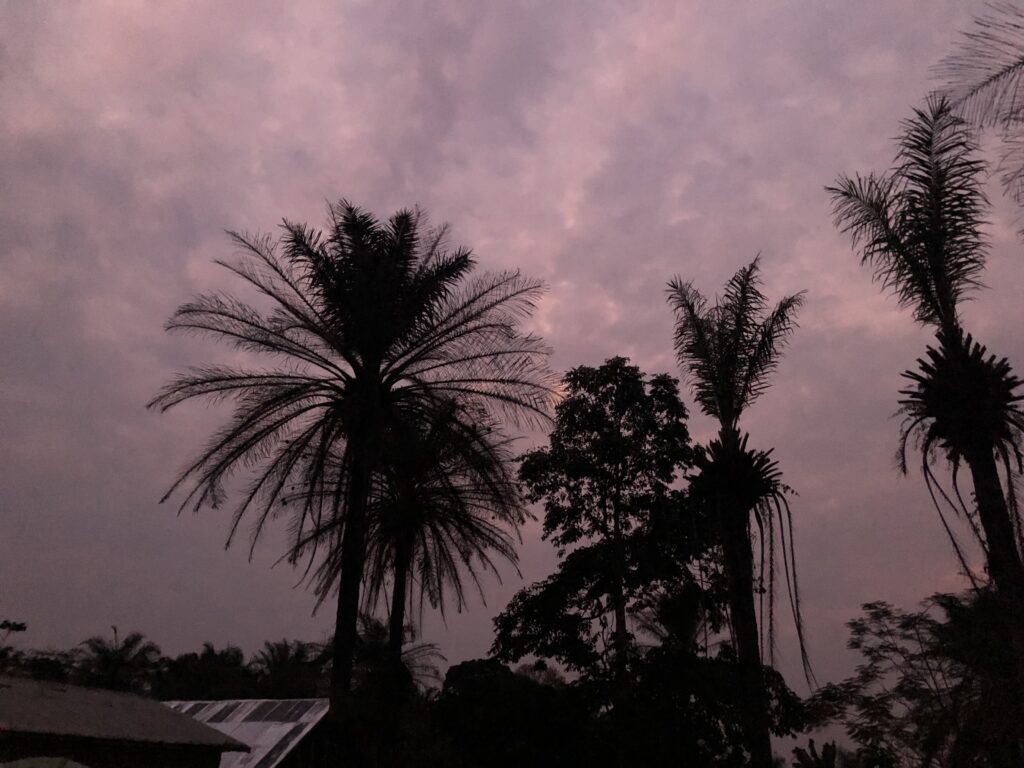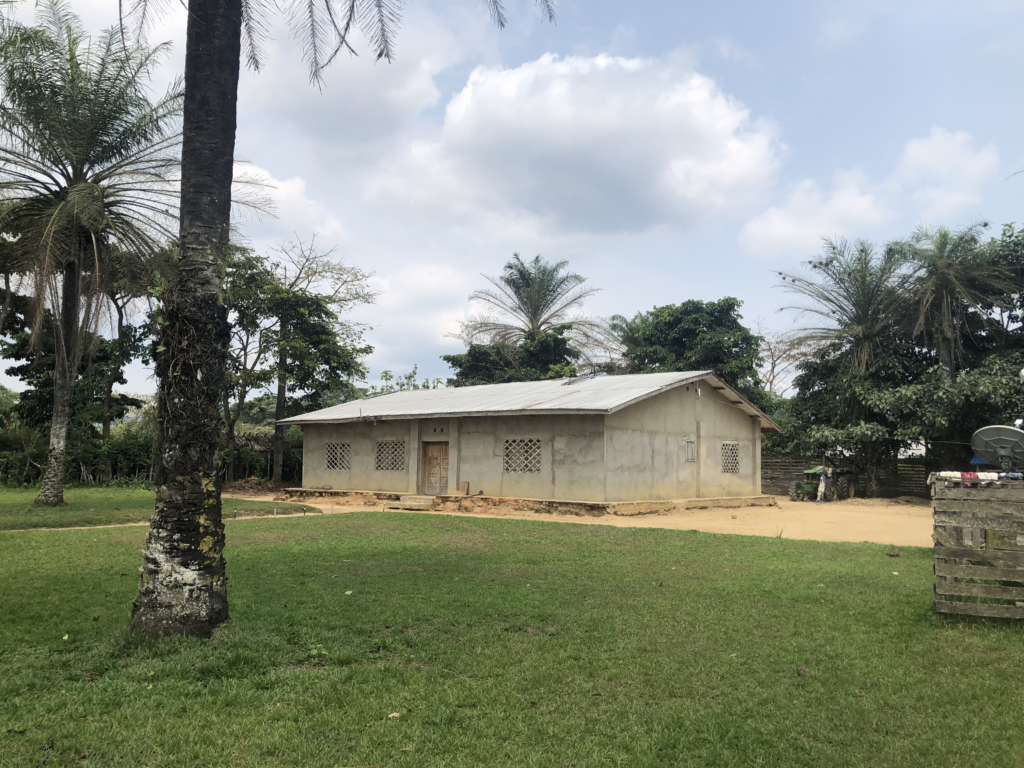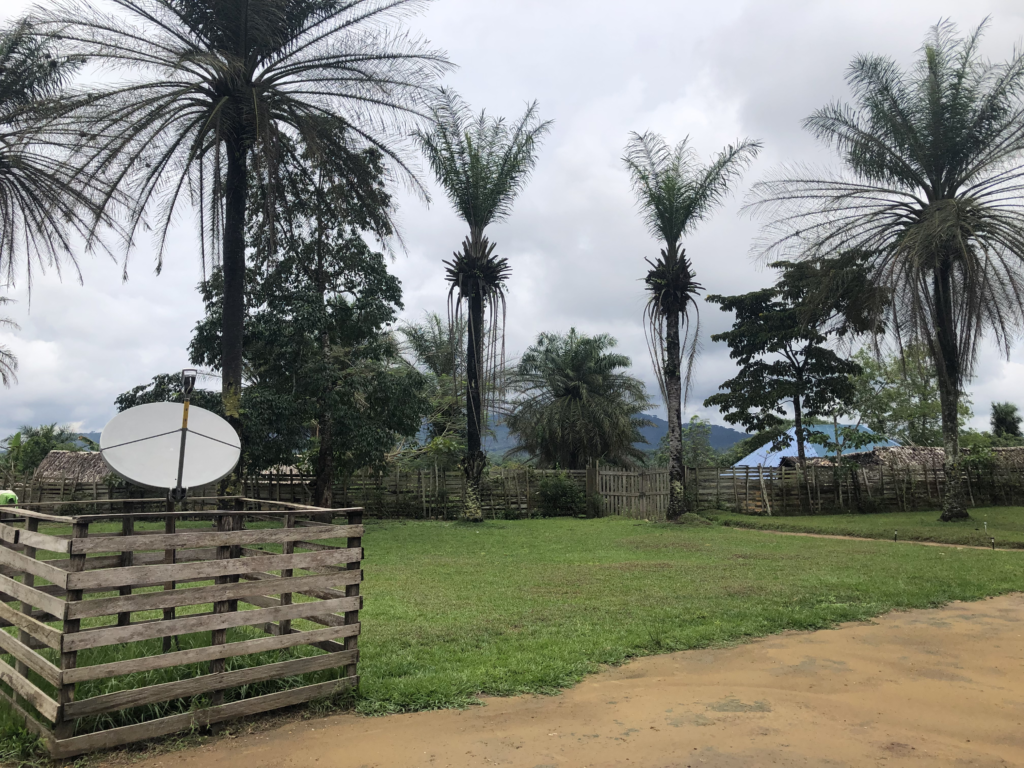Kwabene in Kitindi
03. The Rain is Coming...

We arrived safely on the afternoon of August 17. Though I am getting used to them, bush plane flights continue to feel precarious to me. They’re almost like being in a small bus that’s cruising at 1,000 feet—it would be a surreal experience if each bout with turbulence didn’t make your stomach turn. Upon landing, we were greeted by local family, friends, and colleagues, as well as a couple hundred onlookers, mostly of primary-school age. When I arrived with my whole family the previous month, dozens of these children followed us about two kilometers from the runway to our place of residence. These dozens then continued to gather outside our fence or in our front yard everyday, simply hoping to get a glimpse of us and, if they were lucky, catch us doing something interesting. However, it would seem that while Henri and I are still somewhat attention-grabbing, we are not worth gathering daily in large numbers. Walking through town, we are stared at and/or greeted by many as the village’s resident bazungu, but day-to-day, we don’t typically draw large crowds.
Both Henri and I have been surprised at how easily and comfortably we’ve settled into our new life here. Some of this is surely due to what is familiar. Thanks primarily to labor done by my uncle, his father-in-law (a retired engineer), and an electrician from Bukavu (who is like a son to my grandparents), our home is outfitted with functioning lights, outlets, several batteries for power storage, and enough solar panels to supply between 5 and 6 kWh of energy each day. Even when it’s cloudy, the weather app on my phone rates our UV index highly and energy can come in at as much as 1000 watts! We also have satellite-based wifi powerful enough to stream video, and Henri and I have been given a workspace, complete with a desk for each of us. Before our arrival, we were unsure about the availability of lights and water, let alone internet. In fact, before the current setup was completed, the power would only be on for about six hours a day and could only handle so much usage. It would shut down around 4:00 every afternoon, and with the lights went the wifi. However, the system was recently improved, providing us with very consistent power (dependent on the sun), and this along with the workspace has been a welcome blessing.
In addition to these luxuries, we’ve quickly come to appreciate what is more unique to where we live. We have no running water, so our cooking, cleaning, and bathing are performed with rainwater or springwater delivered by hired porters. This means that instead of a shower head, all of our bathing involves using a bowl to scoop water out of a bucket and pour it over our heads. However, after only a few days, we noted that something about this way of showering just feels right. As I pour water over myself and it runs down the incline of our bathroom’s cement floor to the drain, I imagine I am in some sort of ancient Mediterranean bathhouse. I have no actual idea what such places were like, but I emerge clean all the same. Along with this unique experience, our daily commute of about thirty yards from our house to our office affords us clear country air, up-close views of lofty palm trees, distant views of forested mountains, and frequent encounters with my grandparents’ farm animals. Our house is on a sizable piece of land and has space for a large garden (which produces some food for us and some to be sold) as well as dozens of mammals and birds (about 24 goats, several pigs, and a couple dozen ducks and chickens). In contrast to Bukavu, this area is tranquil, orderly, and relatively clean, and I have come to cherish it. For the past two weeks, we’ve spent our time resting and settling in, preparing our lessons, and sitting in daily three-hour training sessions with our fellow teachers.


All has been well. That is, until the rains started.
It started last week with a few scattered showers. However, Monday was a downpour, and the hard-packed, dusty earth of our compound turned to puddles and fast-flowing streams. Our office is water-tight, so we were content with online lesson-planning and note-taking until we realized that the heavy rains interfere with the satellite—no wifi. We’ve also been tracking the battery power. Because of the high UV index of our area, the panels receive rays even when it’s cloudy, but when the clouds blacken the sky, the energy is reduced. And what used to be hard-packed dirt paths now threaten to slide out from under us or swallow the soles of our shoes.
Congo envelopes the equator. It is also very large, meaning the climate varies depending on how far one travels from the equator. Both north and south of the equatorial climate zone are tropical climate zones that experience a rainy season and a dry season. While the northern tropical climate zone has its rainy season from April to November, Kitindi is about 240 miles south of the equator and sees rains from about September to May. I do not know the figures for South Kivu specifically; however, some parts of Congo experience 2000mm of precipitation annually—twice as much as Chicago’s rain and snow. For the next several months, we can expect rain 15 days or more per month. With this, too, we anticipate more mosquitoes, more malaria, less power, and lightning strikes (Congo has been referred to as the world’s lightning capital).
We’re bracing ourselves for what the rains have in store, but in the meantime, we’re continuing to spend time with our colleagues, undergo training, and prepare lesson plans. The first day of school is September 5!
I will be an unpaid volunteer teacher at Union Academique de Kitindi for the 2022-23 academic year. Please consider giving as you are able by clicking the button below or addressing a check to International Berean Ministries and including my name on the memo line. Donations cover room, board, and travel expenses.
International Berean Ministries
PO Box 88311
Kentwood, MI 49518-0311
